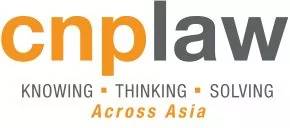Ong Chow Hong (alias Ong Chaw Ping) v Public Prosecutor and another appeal [2011] SGHC 93
Introduction
The appellant Ong Chow Hong ("the Appellant"), a non-executive Chairman and an independent director of a listed company Airocean, was charged and convicted under section 157(1) of the Companies Act ("the Act") of failing to exercise reasonable diligence in the discharge of the duties of his office. The District Court in PP v Ong Chow Hong [2009] SGDC 387 imposed a fine of $4,000 (in default 4 weeks imprisonment) and disqualified under section 154(2) of the Act from acting as a director of a company or of a foreign company and from taking part, whether directly or indirectly, in the management of such a company or foreign company for a period of 1 year.
On appeal to the High Court, in Ong Chow Hong (alias Ong Chaw Ping) v Public Prosecutor and another appeal [2011] SGHC 93, per VK Rajah JA, the disqualification penalty was increased to 2 years upon a finding that the Appellant committed a serious lapse in the discharge of his responsibilities as such director.
Background Facts
On 6 September 2005, Airocean's CEO Thomas Tay ("Tay") was picked up by officers from the Corrupt Practices Investigation Bureau ("CPIB") for questioning upon allegations of corruption involving Airocean and 2 other companies in the air cargo industry. Upon CPIB's instructions, Tay gave instructions to his office staff to prepare certain documents concerning the corruption allegations. Tay was detained for 36 hours and while he was released on 7 September 2005, and his passport was impounded.
The other directors of Airocean convened an urgent board meeting to discuss the company's course of action given the CPIB matter. Peter Madhavan, a lawyer, was an independent director of Airocean and was present during the board meeting on 8 September 2005.
The High Court noted that the minutes of the meeting showed that the board of Airocean was informed of the following:
- on 6 September 2005 at about 7.00am, CPIB officers had called upon Thomas Tay to assist the CPIB in an ongoing invesgation;
- CPIB had requested for and obtained from Airocean all e-mails of Thomas Tay from 1 January 2005 to 6 September 2005;
- Thomas Tay had asked for certain documents relating to the corruption allegations;
- Thomas Tay's passport was impounded by CPIB;
- Thomas Tay was questioned for 36 hours by CPIB;
- Thomas Tay was questioned on whether he had offered any gratification to the staff of some companies in the airline industry;
- Thomas Tay had sought his own legal advice on the CPIB investigation; and
- Thomas Tay's counsel was of the opinion that the worst-case scenario was that Thomas Tay might be exposed to a criminal charge of offering gratification.
While it was not recorded in the minutes, the High Court further found that Tay informed the board that he was released on bail.
The board resolved that for the time being, nothing further needed to be done.
Subsequently, on 25 November 2005, the Strait Times published the article entitled "Airocean's chief executive Thomas Tay under CPIB probe" ("the Article"). Notably, Tay was quoted in the Article as saying that he was not the subject of a CPIB investigation. On the same day, the Singapore Exchange Limited ("SGX") required Airocean to explain why CPIB probe of Tay was not disclosed to the public and to further confirm whether or not Tay was indeed the subject of said investigation. Upon suggestion of SGX, a trading halt was imposed upon Airocean shares and in the meantime, company secretary Ms Ang Lay Hua ("Ang"), the board of Airocean was informed of the SGX's request to make a clarificatory statement in response to the Article.
Ang informed the Appellant via a telephone call of these developments and upon such information, the Appellant informed Ms Ang Ong Chow Hong (alias Ong Chaw Ping) v Public Prosecutor and another appeal [2011] SGHC 93 ISSUE 11/03 Page 2 that "he would agree to any announcement issued by [Airocean] if [Madhavan] approved of it. [The Appellant] said that that was because he was going to play golf that day". During trial, the Appellant also tried to explain that the "golfing event he attended was not a mere social affair." The golf tournament was organized by the Aljunied Town Council of which the Appellant was Chairman of the Audit Committee and the Appellant played a prominent role in the said golfing event. The announcement was released without any comments or input from the Appellant.1
Issues
The 3 principal issues on appeal were the following: (a) whether Chow Hong's lapse of judgement was serious enough to warrant disqualification; (b) the length of the disqualification to be imposed on Chow Hong; and, (c) whether the objective of the law is to protect the public, to punish the offender, or a combination of both.
Ruling
Protective or punitive
In first assessing issue in (c) above, VK Rajah, after reviewing local jurisprudence (Quek Leng Chye and another v Attorney-General [1985– 1986] SLR(R) 282, Huang Sheng Chang and others v Attorney-General [1983–1984] SLR(R) 182, Lim Teck Cheng v Attorney-General [1995] 3 SLR(R) 223 and Lee Huay Kok v AttorneyGeneral [2001] 3 SLR(R) 287) and the statutory structure of the disqualification under the Act, held that such disqualification regime is predominantly protective in nature, rather than punitive. This means that a court, as a rule, disqualifies a convicted person from sitting as a director in a company, more to protect the public and not so much to punish the offender.
The "shield of protection" according to VK Rajah has 2 sides to it: (1) specific protection: the right of the public to be protected from an individual who has failed to discharge his obligations qua director; and, (2) general protection: "the need to generally protect the public from all errant directors by an uncompromising reaffirmation of the expected exemplary standards of corporate governance."
While existing case law on the matter of disqualification remained largely focused on the first side or aspect of the "shield of protection", VK Rajah noted that the second side or aspect of protection is even more significant as there is a need for the courts "to ensure the accuracy of market disclosures" (see Singapore Parliamentary Debates, Official Report (5 October 2001) vol 73 at col 2135 (BG Lee Hsien Loong, Deputy Prime Minister and Public Prosecutor v Wang Ziyi Able [2008] 2 SLR(R) 1082). VK Rajah stated that in resolving disqualification issues, these 2 aspects of protection must be considered closely.
Failure to discharge responsibilities of a director
As for (a) and (b), the VK Rajah did not accept that the Appellant failed to fully comprehend the seriousness of the situation in Airocean relating to the CPIB investigation which involved Tay. More interestingly, the Court found that if indeed, the Appellant failed to recognize the gravity of the situation within Airocean despite having been informed of the facts, then the Court has all the reasons to bar him from directorships in companies "where perceptive judgments are fundamental."
VK Rajah further ruled that the Appellant failed to vet and approve the draft of a rather short announcement, despite opportunity to do so and more importantly, despite knowledge of the exigent circumstances then prevailing, i.e. that Tay was under CPIB investigation for corruption. VK Rajah further found that the Appellant failed in his obligation to comprehend the urgency of the SGX request for clarification of the Article and the need to accurately and promptly respond to such a query.
Finally, VK Rajah ruled that the Appellant was "either indifferent to his wider responsibilities or failed to appreciate them" and "had committed nothing short of a serious lapse in entirely abdicating his corporate responsibilities" when he delegated his responsibilities to Peter Madhavan. The High Court concluded that directors of listed companies in Singapore have to appreciate that our present disclosure based regime requires accurate and prompt disclosure to function effectively. It would never be sufficient or acceptable for a director to say that he expected his co-directors to do "right" by the company. Every director has to ensure that he discharges his responsibilities with due diligence in all pertinent matters. Therefore, any reliance on professionals or any reliance placed on "specialised" directors must be balanced against the responsibility that the law placed upon every individual director to bring to bear their own judgment in evaluating the advice received. Directors cannot adopt a silo approach and invariably seek shelter behind other "specialised" directors on the notion of reliance. How this responsibility ought to be discharged in any particular case would be a question of fact.
As a result of such findings of fact, VK Rajah found that the one-year disqualification imposed was inadequate and increased the same to 2 years while ruling that "the courts will not be slow to disqualify directors for substantial periods of time if and when it is established that there have been serious lapses in the discharge of their responsibilities."
Lessons
There are 3 important lessons to be learned from this case:
First, a director cannot delegate his responsibilities to another director. In the case of the Appellant, the High Court disapproved of his statement that if Peter Madhavan approved of the course of action about to be taken by the listed company or approved of the announcement as drafted, he was likewise agreeable to such course of action or to such announcement as drafted. The High Court in effect found that such a statement or act amounted to an abdication of the Appellant's corporate responsibilities, which would amount to a criminal offence under the Act or a violation of a director's "solemn and non-delegable duty of due diligence to ensure compliance with market rules and practices."
Second, a director is required to have a clear and comprehensive understanding of the pressing matters or important issues confronting the company and to have the capacity to recognize and appreciate whether these matters should be disclosed. Once disclosure of such issues or matters is settled, a director is also required to have the capacity to make an accurate and prompt disclosure to the SGX.
Third, a director is mandated to consider closely the draft of the announcement before it is released. Put simply, a director is required to vet and approve every announcement before it is released to the SGX. That the Appellant had no time to review the announcement as he was at that time, engaged in some other activity, was not looked upon with much favor by the High Court. A director is required "to take a proactive involvement in the release of the announcement."
Footnote
1In a separate case against the other directors Peter Madhavan, Johnson Chong and Ong Seow Yong, the District Court found that the announcement was misleading in a material particular: Public Prosecutor v Chong Keng Ban @ Johnson Chong (B1) and others [2011] SGDC 97.
This update is provided to you for general information and should not be relied upon as legal advice.


